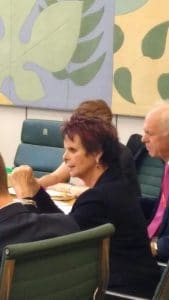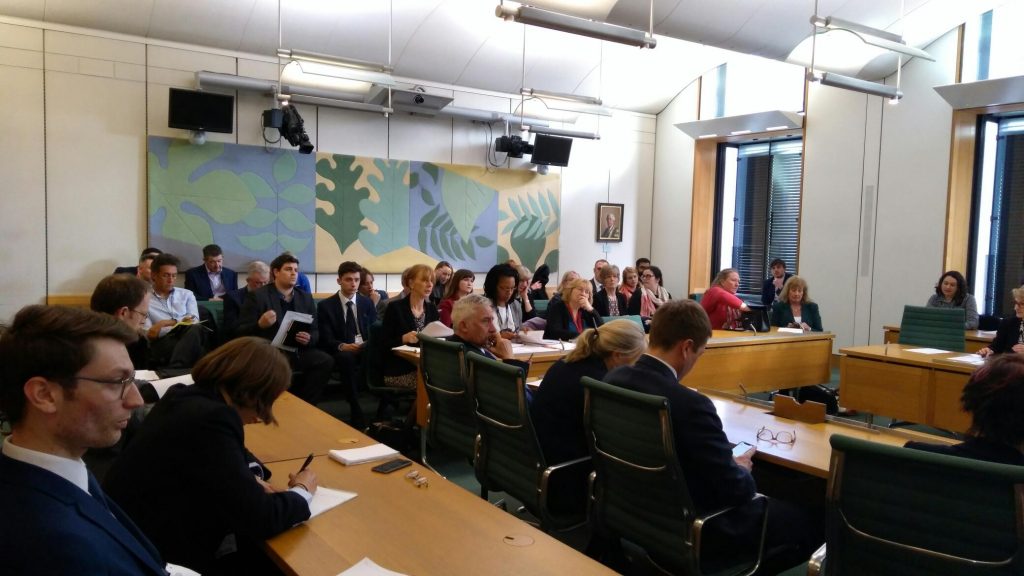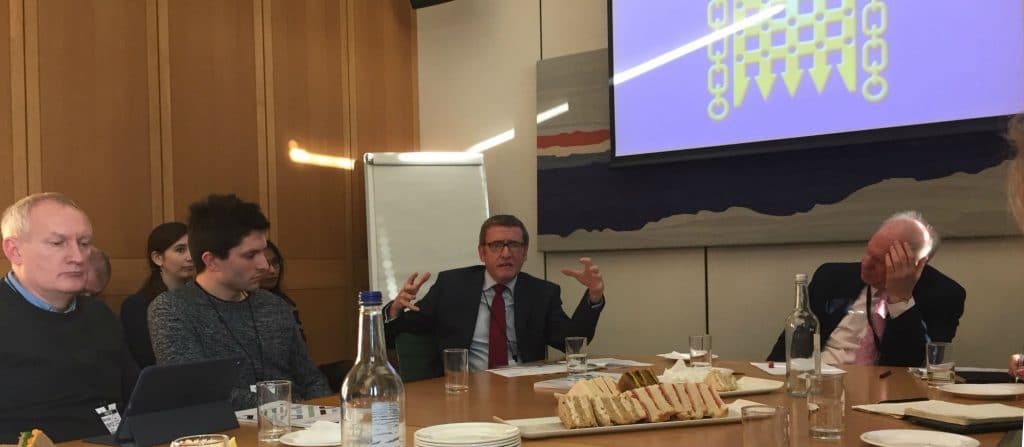On 13 June 2018, the APPG for Education met two Department for Education officials involved with the implementation of the careers strategy. This meeting follows the APPG’s meeting with the Skills Minister Anne Milton in March and carries on the work of the APPG’s inquiry on preparing children for their future, which reported in May 2017.
Attendees
Adam Nice: Secretariat, APPG for Education
DfE:
Clare Worsdale: Careers Policy Lead – Responsible for the delivery of careers strategy commitments in schools and colleges
Ifeyinwa Okoye: Informed Choice Policy Lead – Responsible for the better use of data and information
Current priorities
The DfE’s current priorities on careers revolve mainly around implementation of the Government’s 2017 Careers Strategy, which is intended to be implemented across 2018-2020.
An initial priority is embedding the eight Gatsby benchmarks. The 2017 Careers Strategy expects schools and colleges to begin working towards the Benchmarks now and to meet all eight by the end of 2020. The DfE is working closely with The Careers & Enterprise Company to support schools and colleges so that they can deliver against the Benchmarks.
The DfE aims to replicate the successful pilot of the Gatsby Benchmarks in the North East. This demonstrated the importance of having an individual with strategic responsibility for careers in every school and college., The DfE is working to deliver its commitment to provide funding for the training of 500 Careers Leaders over 2018-19 and 2019-20.
To strengthen local community involvement and to build on the North East Pilot, The DfE is in the process of identifying and setting up 20 Careers Hubs supported by £5 million of government funding.
There have been some questions on exactly what the government’s promised 20 Careers Hubs are and how they will operate. The DfE’s representatives said that the North East pilot of the Gatsby Benchmarks is an example of how the new Careers Hub will operate. The locations of the 20 Careers Hubs should be announced in the summer and established by September.
There are some areas where the careers strategy sets out a need to investigate new approaches to careers provision and understand more about what works. This includes the importance of engaging young people with science, technology, engineering and maths (STEM), targeted support for specific disadvantaged groups of young people (including those with SEND) and careers activities in primary schools.
The National Careers Service is currently being re-procured. The DfE expect to name the new provider(s) ahead of the delivery of a new area-based contract which starts on October 1 2018.
In terms of data availability, the DfE is aiming to better publicise the wealth of information which is already available. The National Careers Service website will be a part of this effort as it will eventually become the place for all Government careers information. The DfE is also looking to make destinations data more accessible to people and encourage greater use, but warns about some challenges regarding their use as an accountability tool. For example, it becomes more difficult to attribute causation to schools for longer term outcomes and increased data collections could worsen the workload burden on schools.
The Careers & Enterprise Company
The Careers and Enterprise Company has recently come under criticism from the Education Select Committee for being a ‘waste of public money’. They were criticised in particular for a research spend of £1m of their total £19m annual budget. The officials said that the CEC was doing some good work but there were some legitimate concerns expressed by the Committee, particularly around transparency. They gave some examples of effective research, including the Moments of Choice research conducted with the Behavioural Insights team and the What Works reports.
Patchy provision
A common criticism of careers provision heard by the APPG’s inquiry is that it is ‘patchy’. The DfE representatives said that all schools and colleges working towards the Gatsby Benchmarks will help to ensure a more even provision. The Careers & Enterprise Company’s compass tool (developed in partnership with the Gatsby Foundation) provides a means for schools and colleges to assess their own careers programme against the Benchmarks. The 20 new Careers Hubs will also target areas where provision is weaker and The Careers & Enterprise Company aims to be very active in ‘cold spots’ and as part of the Opportunity Areas initiative.
Meaningful encounters
Questioned on whether the phrase ‘meaningful encounters’ was too broad, the DfE’s representatives replied that they want to follow the Gatsby Benchmark framework to implement the Careers Strategy. They said that schools and colleges could draw on the What Works research to inform their interpretation of ‘meaningful’. They acknowledged that the types of encounters available may vary by region but said that emerging partnerships between businesses and schools demonstrate the potential for what is possible.
SEND
Provision for children with Special Educational Needs and Disabilities was another area of careers provision that was regularly identified as lacking in evidence to the APPG’s inquiry (prior to the 2017 Careers Strategy). The DfE is working to understand the area better, and the DfE’s representatives acknowledged that some aspects of the Gatsby benchmarks might not be particularly appropriate or achievable for special schools. Work is underway to review the benchmarks for special schools. They said that money has been set aside to trial new approaches for pupils with SEND and The Careers & Enterprise Company has produced research on what works for children with SEND.
Ofsted
One of the potential weaknesses of the 2017 careers strategy is ensuring compliance and guaranteeing that schools and colleges see its implementation as a priority, especially in the context of competing demands that are enforced by high-stakes accountability measures. The DfE’s representatives said that there is legislation in place that requires Ofsted report on careers provision in college inspection reports. However, they said that they do not believe that introducing an Ofsted grading of careers provision is realistic in the near future and that it is not the right route for compliance with the 2017 careers strategy.



